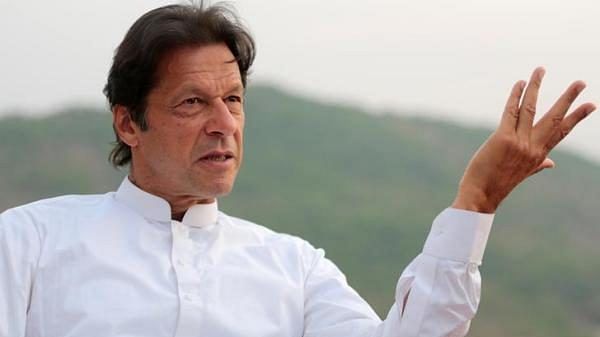Imran Khan couldn’t complete his full term in office as Pakistan’s prime minister either. No PM of Pakistan ever has. Ironically, elections in Pakistan seem to weaken the democratic set-up rather than strengthen it. One important reason for this is that the army shoots down any attempt at strengthening democracy and empowering the civil society. In Pakistan’s version of democracy. what the constitution proposes the army disposes. Imran Khan was no exception. His fate was decided the day his party won the elections and he formed the government in 2018 succeeding Nawaz Sharif.
Nawaz Sharif came to power with the promise of improving relations with India. Many political commentators on both sides of the border believed that he would sincerely keep his promise. Even the Indian Prime Minister, Narendra Modi, went the extra mile to support his resolve, arriving in Lahore on a surprise visit to meet Sharif. That is probably when the army decided to change the script, and also the Prime Minister.
Imran read the civilian book
The army used Panama Papers as a ploy and dislodged Nawaz Sharif. A five-judge bench led by Supreme Court judge Asif Saeed Khosa, who went on to become Pakistan’s 26th Chief Justice, dismissed Sharif for being in violation of provisions under Articles 62 and 63 that require the elected representative to be “sadiq and ameen” (truthful and trustworthy).
The terms were introduced by military dictator Muhammad Zia-ul-Haq as part of his policy of aligning the legal system of Pakistan with Islamic tenets and radicalise the army. The real purpose of this clause was to empower the clergy and throw out political leaders who would disobey the army. In other words, any politician who thinks of extending an olive branch to India should be shown the door, preferably unceremoniously.
Imran Khan also promised to work towards better relations with New Delhi, wording it as “civilised relationship” for peace and progress in the region. His immediate task was to go round the globe seeking investment and attend to the country’s sagging economy. Besides the IMF, China also promised to pump in more money in the China-Pakistan Economic Corridor (CPEC) project.
But all these debts had strings attached to them. The IMF wanted tax collection to increase and Beijing expected Islamabad to crack down on Uyghur groups regrouping in Pakistan. China also wanted the army to discipline the Baluchi freedom fighters so that Beijing’s grip over Gwadar port is trouble free. The army needed a political face in Islamabad to get finances and credibility and a free hand to bulldoze rebels and rivals.
Also read: What’s happening in Pakistan is unusual—a meltdown across major institutions
Army remains a powerful entity
The army in Pakistan has always been a powerful entity calling the last shots. Not the one to trust politicians, the Generals (Ayub Khan, 1958-1971; Zia, 1977-1985; and Pervez Musharraf, 1999-2002) usurped power under the garb of “awam khatre mein” (the nation is in danger) and promised to provide a corruption-free administration.
After 2002 the army probably realised the need for a political face in Islamabad and hence began looking for rubber stamps. The army is aware that its very existence will be in danger if the political dispensations decide to mend the fence with India, become a truly functional democracy and above all bury the hatchet.
It is high time the civil society, political outfits and the army learn their lessons. Suppression of the people after the 1970 election where the Awami League posted a landslide victory ended in the breakup of Pakistan. Suppression of democratic rights, aspirations and identity, and using brute force to crush human rights in Balochistan, Sindh and North West Frontier Province will result in further balkanisation and ultimate dissolution of Pakistan.
Series of elections have proven that Pakistan cannot survive without the support of the army whose only agenda and reason to exist is to lead a ‘hate India’ campaign. Therefore, the political head in Islamabad has to toe the army line or get out of its way.
Also read: Imran Khan’s fall is a win for Pakistan’s Generals, not its democracy
What the crisis means for India
The turmoil in Pakistan will surely spill over into India leading to increased terror activities by the so-called non-state actors in border states. New Delhi can deal with the situation firmly and impose a heavy cost on Islamabad and the army HQ and even restrict free flow of Indus water as a punitive measure. But any such measure will unfortunately have a collateral damage of hurting the people of Pakistan who are already paying a heavy price for the tragic Partition imposed on them.
Even 75 years later, Pakistan still struggles to establish its identity. Anti-India campaign and raising the Kashmir issue on every regional and international forum has remained the only agenda of Islamabad. There has to be some realisation in the bureaucratic and diplomatic quarters that with the abrogation of Articles 370 and 35A of the Indian Constitution, the Kashmir issue under the Narendra Modi government is done and dusted.
The only issue that remains pending is the implementation of the parliamentary resolution passed in 1994 that vowed to reclaim the entire area of Pakistan-occupied Kashmir. The current geopolitical dynamics call for a strong leadership in the region to maintain peace and assure economic stability and growth. Only New Delhi can provide such a leadership, if only it decides to rise to the occasion.
The author is the former editor of ‘Organiser’. He tweets @seshadrichari. Views are personal.
(Edited by Prashant)



